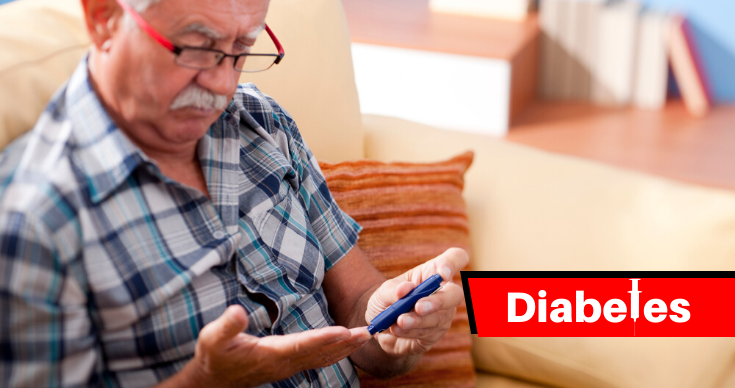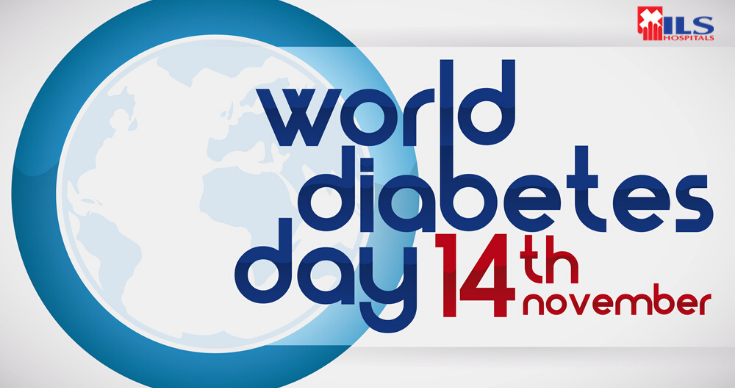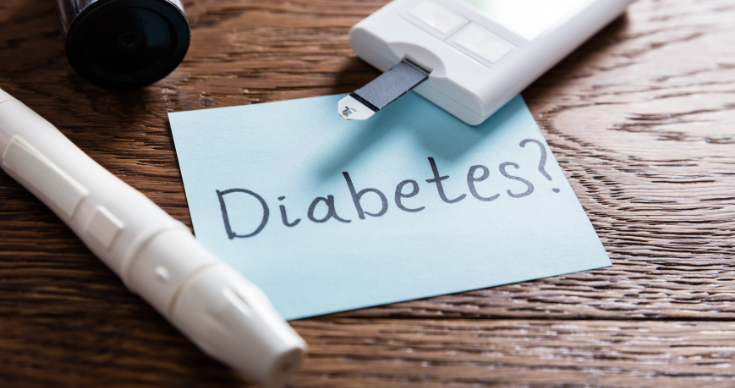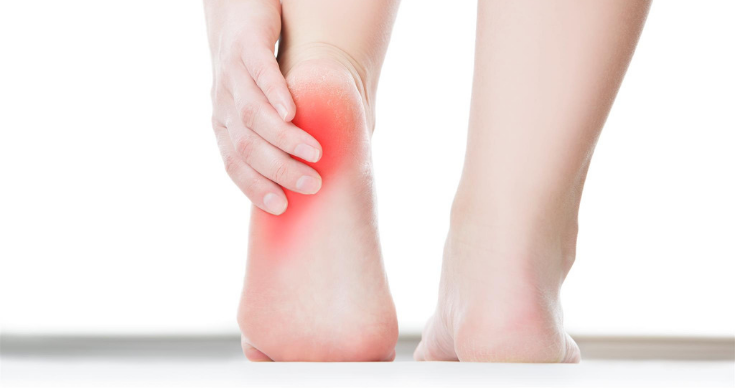Let’s Know More About Juvenile Diabetes
Juvenile diabetes or simply called diabetes in children is on the rise today. It was earlier believed to be the disease effecting only the elderly. But now it is found in children and younger people as well.
Diabetes – two types – Type 1 and Type 2. In type 1 diabetes, the pancreas does not make insulin while in type 2 diabetes, the body does not make sufficient insulin or does not use the produced insulin effectively. Significantly, type 1 diabetes is more common in children.
The primary cause of juvenile diabetes is genetics. Let’s discuss the symptoms of diabetes in children.
-
Frequent urination
-
Increased hunger and thirst
-
Fatigue
-
Fruity-smelling breath
-
Sudden weight loss
-
Hazy vision
-
Irritability.
Diagnosis
Although symptoms are enough to prove diabetes mellitus in children but for proper confirmation, certain diagnostic tests are recommended by the paediatric diabetologist. So, the question arises, what are the diagnostic tests performed to confirm juvenile diabetes.
The diagnostic tests for diagnosing diabetes in children are as follows:
-
Blood Sugar Test (both fasting and random)
-
Glycated Haemoglobin (A1C) Test
-
Urine Test.
Treatment
Diabetes treatment in children as generally prescribed by the paediatric diabetologist includes the following:
-
Medications
-
Insulin injections
-
Regular monitoring of blood sugar levels
-
Changes in diet and lifestyle.
Prevention
We believe prevention to be always better than cure. Is there any way to prevent diabetes in children? Sure, there are many ways you can prevent your children from getting diabetes. Some of them are as follows:
-
Encouraging them to be more active
-
Feeding them healthy meals
-
Cutting back on their sugar intake.
Getting timely diabetes treatment is vital for your child. Hospitals in Kolkata and Agartala offer Juvenile diabetes treatment from the best diabetologists.
Stay Away From These Foods If You Have Diabetes
Diabetes is a chronic medical condition of high blood sugar or glucose levels, which leads to various other health-related complications, if not controlled on time. Diabetes treatment involves certain medications, weight loss, lifestyle changes, and dietary instructions.
Related: On This Diabetes Day, Let’s Triumph Over Diabetes By Following Some Simple Tips
Foods that are high GI (glycaemic index), which means foods with high glucose content, needs to be kept at arm’s length while managing diabetes. Today, we will discuss some foods that you should avoid consuming with diabetes. Let’s find out what you should not eat when dealing with diabetes.
1. Sugar and Sweets:
As you must have heard from everyone around you, people with diabetes should refrain themselves from having sweets or sugary foods and added sugar. Commercial honey is not safe either, choose safe and organic honey and consume it in moderation as advised by the doctor. You need to avoid cakes, pastries, ice creams, chocolates, packaged fruit juices, cold drinks, jaggery, sugar syrup, jams and certain dried fruit (raisins, figs, apricots, dates etc.). Eat fruits with a high glycaemic index like banana, pineapples, grapes etc. in moderation.
2. White Rice:
You should avoid white rice if you have diabetes as it is rich in carbohydrates and has low fibres. White rice can increase your blood sugar levels due to its high glycaemic index. Choose whole grain rice or brown rice as a substitute for white rice. Opt for roti more than white rice.
3. White Flour:
Never consume white flour if you have diabetes, white flour has nothing good to offer the body. Go for wholegrain bread or products made of wholegrain flour. If you want, you can even use buckwheat flour that is used to make dishes for fasting in India.
4. Red Meat:
Avoid red meat (mutton, lamb etc.) if you are suffering from diabetes. Red meat increases your body weight due to its high-fat content that further aggravates diabetes. Best sources of animal protein for diabetics would be eggs, seafood etc.
Next time when you visit your supermarket, refrain yourself from purchasing baked and canned foods, do not eat oily or deep-fried foods at all. Also, try to eat home cooked food when you have diabetes. For your diabetes treatment and proper diet chart you can come to ILS Hospitals, one of the best hospitals in Kolkata to get proper diagnosis and treatment.
On This Diabetes Day, Let’s Triumph Over Diabetes By Following Some Simple Tips
Living with diabetes is never easy, once you have diabetes there’s nothing you or doctors can do to cure this sad disease. However, you can surely control it by adopting some lifestyle modifications and by getting regular check-ups from a diabetes clinic.
On the occasion of World Diabetes day, let’s take a pledge to beat diabetes against all odds by following these measures:
1. Embrace a diabetes-friendly diet:
There’s a saying, “watch what you eat”, and this is exactly what you need to do if you have diabetes. You should make eating a healthy and properly balanced diet, a significant part of your daily life. Go for foods that regulate your blood sugar levels. Foods that are beneficial for you when you’ve diabetes (either type 1 or type 2) are as follows:
– Fatty fishes
– Eggs
– Leafy Greens like spinach, cabbage, broccoli, cauliflower, etc
– Dry fruits like cashew nuts, almonds, pistachios and walnuts
– Whole grains like brown rice, millet and whole wheat
– Low portions of fruits like strawberries, pears, bananas, apricots, oranges, cherries, guava etc.
2. Eating small and frequent meals:
Skipping your meals is the last thing you want to do if you have diabetes. If you do not want to have large meals, eat small meals frequently to control your blood glucose levels.
3. Shun your sedentary lifestyle:
Living an inactive lifestyle is a strict “no” for people with diabetes, as a sedentary lifestyle leads to serious health concerns like obesity and cardiovascular diseases. Maintaining a healthy weight is your first step to win over diabetes. Certain times, the doctor might suggest bariatric surgery to highly obese diabetic patients. So do include some physical activities of your choice in your life.
4. Abstain from sugary foods:
Diabetics probably know that “sugar” is their worst enemy. Though sounds difficult, you need to abstain from your favourite sweets, chocolates and sugary beverages if you’re dealing with diabetes. Choose sugarfree sweets instead if you have a sweet tooth.
5. Be serious about medications:
Take your medicines on time as prescribed by the doctor to normalize your blood sugar levels.
6. Watch your diabetes:
Keep an eye on your diabetes by getting regular check-ups from a good diabetic clinic. You can always avail our Decoding Diabetes health check up packages.
Do not let your diabetes keep you stressed and distressed. We understand how diabetes can be the worst experience for anyone, so we provide effective diabetes treatment at ILS Hospitals to help our diabetic patients. You are welcome to our hospital for proper diabetes’ diagnosis and treatment.
Diabetes And Its Harmful Effects On Overall Health
Diabetes is a medical condition which is becoming so prevalent around us these days. Until 2-3 decades ago, it was considered to be the old people’s disease, but now, young people are also seeking diabetes treatment. Many diabetes clinics, report having young children falling prey for diabetes as well. Let’s discuss what harmful effects diabetes has if it is left untreated for long or is poorly managed.
1. Slow Healing
Slow healing is the most common condition among diabetic people. Carrying out any invasive medical treatment is very challenging for the same reason. Any minor or major cut, burn, blister, etc does not heal quickly for the diabetic patients. This mostly happens in hands and feet. In rare cases, it can also lead to foot or toe amputation, when it is left untreated over a long period.
2. Kidney Damage
Having kidney failure or severe kidney disease is also a likely scenario in the case of diabetes. The patient might end up needing dialysis regularly or seeking advanced renal transplant.
3. Heart Conditions
Diabetes affects how the heart and its surrounding blood vessels work. As a result, risks of having high blood pressure narrowed blood vessels due to plaque built up is quite common too.
4. Eye Disease And Damage
Diabetes brings many vision-related complications as well. Cataract, glaucoma, eye nerve damage, etc. are some of them. In many cases, it can also lead towards blindness that can only be managed but cannot be cured.
5. Skin Diseases
Diabetes cause dry skin, skin irritation, itching, and many other complications. Moreover, slow healing often leads to cracked skin which in turn brings fungal and bacterial infections.
6. Nerve Damage
Prolonged or mismanaged diabetes causes numbness, tingling sensation in the finger and toes. It damages the foot primarily and the affected area keeps on expanding gradually. When the sensation in the feet gets severely damaged, it leads to a condition called the diabetic foot.
7. Gums And Jaws Condition
Having excessive blood sugar can cause gum disease and loose teeth. Diabetic people often complain of bad breath as well, in spite of maintaining good dental hygiene.
8. Frequent Urination
Diabetes can cause frequent urination as well, but it is more frequent among diabetic patients. Though it is not a life-threatening condition, it does hamper the quality of life and professional life of patients, especially who are engaged in work that requires them to travel a lot, on a daily basis.
Most of the complications of diabetes develop slowly, over the period, but they can be life-threatening as well. Thus it is always advised to every individual to keep an eye on the blood sugar level, from time to time. Moreover, people who are diagnosed with high blood sugar, are advised to keep a check on the other aspects of diabetes and possible complications. ILS Hospitals offer diabetes check-up package that offers immense help to diabetes patients.
Most Common Diabetic Foot Conditions You All Need To Know About
Diabetes is one of the most widespread diseases in today’s world. Diabetes clinics, all around the world are addressing hundreds of new diabetes patients each year and the number is rising at an alarming rate. Needless to say, having a timely diabetes treatment is quite crucial, as many of you must be aware that untreated (or poorly managed) diabetes can lead to many complications like damage to eyes, kidneys, skin, nerves along with causing cardiovascular conditions and hindrance in the natural healing process. Today, we are going to discuss one particular condition, the diabetic foot.
Diabetic foot is an umbrella term for the foot conditions that arise due to prolonged diabetes. Let’s list out some of the most common conditions related to the foot that is caused by diabetes.
Diabetic Neuropathy
This causes numbness and loss of sensation in the feet, particularly in the extremities. Eventually, it leads to nerve damage and makes the person unaware of having wounds, infections, irritation, blisters or sore in their feet. Often it happens, that people become unaware of the facts that they are wearing tight shoes or if the shoes are rubbing.
It left unaddressed for long, it leads towards having gangrene and ends up needing an amputation.
Peripheral Vascular Disease
Prolonged diabetes affects the structure and function of the blood vessels. In peripheral vascular disease, the fat starts to get decomposed on the blood vessels reaching hands and feet. As a result, the adequate blood supply to the feet gets hampered and results in pain and infections. If left unresolved, it too can lead to foot amputation in the future.
Athlete’s Foot
It is a fungal infection that leads to cracking of foot skin while making it red and itchy as well. If left untreated, germs can enter through the crack skin and spread infection. Thankfully, it can be easily treated with topical creams and oral medicines.
Foot Calluses
It is the hard skin build upon the underside of the foot. It often occurs due to uneven bodyweight distribution, poorly fitted footwear, prolonged diabetes or some underlying skin condition. Wearing footwear with padding and using a pumice stone to remove calluses regularly is a big help. However, one can consider taking medicine to address it effectively as well.
Foot Corn
It is a hard skin build-up either between toes or on a bony area of the underfoot. It may also happen due to uneven pressure distribution on the foot. It happens mostly on dry skin, due to friction between toes or because of the shoe. Using any sharp object to remove them forcefully is highly unadvised. Instead, proper medication is more useful for the same.
Diabetic Foot Ulcers
Diabetes makes the healing process quite slow, and any cut or injury in the foot can often lead to infection. Diabetic foot ulcers are the condition in which the skin breaks deep on the underfoot. It eventually scrapes out the flesh and if left untreated for long, it keeps on causing damage heavily to the foot.
In case you are suffering from diabetes for a long period and encountering some foot condition, get in touch with our expert diabetic foot specialist to get quality treatment and care.
Watch Out For These 5 Health Hazards During Diwali
It is the time of the year when we all have the best excuse to have as many sweets we want because it is the festive season of Diwali. This festival brings joys and celebration, but sadly, it often brings several unwanted medical complications as well. Watch out for these health hazards that might come uninvited during this time.
1. Burn Injuries
The festival of lights is celebrated with candles, diyas, and firecrackers by the enthusiasts all over India. Moreover, cooking for hours and roaming around ritual fires also increase the chances of fire-related accidents. Needless to say, burn injuries are the most common accident that occurs during Diwali. Unless it is a minor, first-degree burn, it is always recommended to get it treated under a medical specialist.
Read more – A Guide To Types Of Burn And Its Treatment Approach
2. Blood Sugar Fluctuation
As Diwali involves binge eating on delicious treats and sweets, keeping blood sugar in check is quite challenging. In fact, many people hanging in the pre-diabetes zone become susceptible to diabetes during Diwali and seek diabetes treatment afterward. Though it is not exactly a medical emergency, it is crucial to keep count of the sugar intake as diabetes is tricky to resolve after it onsets.
3. Respiratory Discomfort
The level of air pollution increases profoundly due to fireworks during this period of time. This leads to severe respiratory discomfort, especially for children, expecting mothers and older people. People with any respiratory discomfort are particularly advised to practice caution against possible exposure to dense smoke and polluted air.
4. Ear Injury or Hearing Trauma
Firecrackers also produce an abundant amount of loud noise of high decibel. Often it gets corrected on its own, but exposure to the same from a close range can cause some severe damage such as temporary or permanent deafness. Just like the previous safe measure, ENT specialists advise people with a sensitive ear to practice caution to mitigate any severe injury or complications.
5. Cardiac Ailments
The eruption of sudden loud noise due to crackers causes alarm and uneasiness in people, especially, those who suffer from hypertension and other underlying cardiac discomforts. It also might induce sleep disturbance, restlessness, fidgetiness and impulsive behaviors among more susceptible people.
So, keep a note to avoid these health hazards amidst of enthusiast Diwali celebration. Always have a first aid kit within reach, but seek medical help, to rule out the chances of long-term consequences. Happy Diwali!
ILS Hospitals is open 24*7 even during this Diwali to offer you complete medical assistance if needed.
Health Tips To Stay Healthy This Durga Puja Festive Season
Durga Puja – the festival that brings us closer to our family and friends. Amidst these overwhelming seasonal spirit, often we let our guards down and fall in tarps to several health complications. ILS Hospitals lists out some of the health issues related to festive-season and offers some tips and precautions to stay healthy.
1. As we are going through a confused climate, it is uncertain to say whether or not it will be raining in between Puja season. So, take every precaution you should during this time. Also, while pandal hopping, don’t forget to use the mosquito repellent.
2. Despite the prevailing monsoon, the intense sunlight, during the day with clear sky, can cause severe dehydration and sunburn if proper measures are not taken. So don’t forget to carry your umbrella during your day voyages and apply your sunscreen cream as well.
3. You should also be very particular about the food and drinks you feast upon outdoors, with your friends and family. Practice extra caution while going for the Fast food items like Noodles, Rolls and Pani Puri from street vendors.
4. Carrying and consuming bottled water is highly advised. Unpackaged water can be contaminated and thereby can lead to Diarrhoea, Typhoid, Food Poisoning, and Hepatitis.
5. Being in crowded places can cause spreading of several contagious illnesses such as cold, cough, flu and viral infections. Stay on guard while being with crowds in pandals and never-ending queue leading towards the same.
6. Pandal hopping for hours, regardless, of day or night is tiresome. Adequate rest is extremely necessary for you. So, even if you are extremely busy having fun, take out atleast 6 hours each day for sleep. Staying awake all night long is particularly not advised for elderly people and children.
7. Over excitement and enjoyment without caution can also lead towards mild to major injury. So keep a leash on the same and make health and safety your first priority.
8. If you already have any medical discomfort, you should be extra careful. For eg., if you have diabetes, you should keep taking your medicine without a miss and in case you have asthma and respiratory discomfort, it is best to plan your visit to avoid crowds as it might trigger an attack.
So, follow these simple precautionary tips and reap the best of this festive season. Also, take note that ILS Hospitals is all set and functional during the entire puja season. So come down at ILS Hospitals to address any medical emergency or discomfort that you encounter.
Include These 5 Foods In Your Everyday Diet To Manage Your Diabetes
Diabetes is one of the most common medical conditions throughout the world. In India too, its statistics are alarmingly high. The treatment approach is determined by the doctor after evaluating the type and severity of the condition in a reliable diabetes clinic. However, patients suffering from all the types of diabetes are advised to consume certain healthy food and adopt healthy habits to manage diabetes more effectively.
Today, we will discuss a few food items that one should include in their diet to manage diabetes. So let’s begin the countdown
1. Bitter Gourd
As the name itself indicates, this vegetable is quite bitter to taste and people usually avoid it, if they can. However, they include a component commonly known as p-insulin that controls the glycaemic level in the blood. Including them in the everyday diet is an extremely effective way to deal with diabetes-associated complications such as kidney, heart and nerve damage.

2. Green Leafy Vegetables
These are rich sources of nutrients and antioxidants along with being low on carbs and calories. Many of the green leafy also contain vitamin and minerals. In a nutshell, it replenishes eye cells from degeneration and protects it against cataract, which happens to be few common diabetes-associated complications.

3. Protein-rich food
Protein from healthy sources such as eggs, fish, and meat helps to keep blood sugar in check. Moreover, food items like Paneer, Dals, Rajma, etc also happen to be an excellent source of protein as well. Having them in adequate amount controls diabetes.

4. Amla
It is one of the most used ingredients to manage diabetes since ages, particularly as an Ayurvedic remedy. It regulates carbohydrate metabolism in the body, which in turn makes the body more receptive to insulin.

5. Yogurt
Every individual should ideally consume one serving of yogurt to aid one’s digestion and to attain weight loss. It is particularly beneficial for individuals with diabetes, as a controlled body weight can contribute towards the healthy management of diabetes. Moreover, the yogurt contains probiotic and thereby it reduces the risk of heart diseases as well.

These food items have been found to aid in better management of diabetes. However, before adding these in your everyday diet, it is best to seek consultation from a reliable diabetes clinic as well. The diabetologist not only will help you make a perfect diet chart but will also evaluate you from time to time to ensure that diabetes does not lead to any severe consequences.
What Happens When Diabetes Remain Untreated for Years?
The death toll in India has been increasing rapidly since 1990 to 2016. One of the big reason behind it is Diabetes and it’s treatment. One would be shocked to know that diabetes as a life-threatening disease. India stands for the second rank with 69.1 million people affected after China with 109 million people affected by diabetes.
Usually, Diabetes cannot be identified at the initial stage but it catches our eyes when one drastically lose weight and show other symptoms of high blood sugar. If diagnosed at the initial stage, it can be cured real easily, if not, one might have to face many health issues. As per an international expert, diabetes complications typically starts with 5 years; within 10 to 15 years, the majority of the patients will progress to have multiple health issues’.
So, what really happens to a human body when it inhabits diabetes over a long period of time?
Diabetic Eye Diseases: This set of diseases includes eyes diseases such as diabetic retinopathy, diabetic macular edema (DME), cataract, and glaucoma. These diseases can result in a person to lose their vision or worse, total blindness. Effects of these complications depend on how badly they have been affected by diabetes.
Increases Fat and Cholesterol: A severe untreated diabetes over a long period of time can result in the reduction of the formation of good cholesterol and increases triglyceride and bad cholesterol. The density of more bad cholesterol leads to many other health issues such as weight gain, obesity, high blood pressure etc.
Heart Diseases: Base on the previous point, severe diabetes increases the chances of heart disease and stork as more and more amount of bad cholesterol get stored in the heart. This is common in old people and usually known as diabetic dyslipidemia. It is a fatal condition which may increase the possibilities of atherosclerosis or coronary heart disease.
Kidney Failure: High level of sugar present in the body creates difficulties for the kidney to work properly, which often gets damaged or attains other kidney disorders. Though it does not happen with all the diabetic patients, it is better to get treated as soon as possible or else it can arise a question of mortality.
Damages Nerves: Nerves are the medium through which our brain transfer messages to different parts, organ, and functions of our body. A long-term diabetes is said to damage nerve cells which also simultaneously increase difficulties to carry-out our day to day works. This disorder of nerves is known as Neuropathy which further has its own classification.
Deformed Foot: As the long nerves are demolished, the lower limbs get weaker which may cause bunions, flat feet, and other deformities.
Reduces Life-span: All the above-mentioned disease or health hazards increase the complexity of life and sometimes it becomes tough to survive with these abnormalities.
No disease or health-related issues are immortal if it is ignored for a long time. From a minor cough to diabetes every problem not only has side-effects but also treatments. A reliable diabetes treatment can cure all your diabetic problems.
Key Facts About Diabetes and the Importance of World Diabetes Day, 14th November
Our body produces several types of hormones and insulin is a rather crucial one for the proper working of our body. Due to the disbalance of levels of insulin, a deadly disease surfaces, which is known as diabetes. The diabetes is a condition in which either the pancreas fails to produce insulin, or the body fails to utilize the produced insulin to maintain the blood sugar level in the bloodstream.

Key facts about Diabetes
The count of people seeking diabetes treatment increased approximately from 108 million to 422 million from 1980 to 2014.
Diabetes is the seventh leading cause of death among men and women from all over the world, as per WHO
About 50 percent of the deaths due to high blood pressure, is a resultant of diabetes
Diabetes is preventable, particularly the type 2, in spite being a genetical trait, through timely, medical aid along with proper diet and regular exercise.
Prevalence of diabetes over the age of 18, has increased from 4.7 % to 8.5 % from 1980 to 2014.
Diabetes is more prevalent in low to middle-income nations.
Diabetes in later stages brings additional illnesses as well. These include slow healing, kidney failure, foot amputation, heart attack, blindness,
Diabetes claims about 1.6 million death annually.
Diabetes in India
As of now, more than 35 million people are diagnosed positive for diabetes in India. Moreover, the CPR (Crude Prevalence Rate) of diabetes is around 9 percent in urban India and 3 percent in a rural population of India. Thus, the number of people suffering from diabetes is highest, as compared to any other country. The IGT (Impaired Glucose Tolerance) of Indian people is significantly high as well. Thus the number of mobile seeking diabetes treatment is highest as well. Thus it is important that people are aware of the symptoms and treatment of diabetes.

World diabetes day and its importance
On 14th November, we observe wold diabetes day every year. It came into existence in the year 1991, by the joint effort of IDF (International Diabetes Federation) and WHO (World Health Organization). It mainly came into existence to address the increasing threat of diabetes over the health and wellness of people from all over the world.

The WDD (World Diabetes Day) is the biggest diabetes awareness campaign in the world, as it reaches more than 1 billion people globally spread in over 160 countries.











